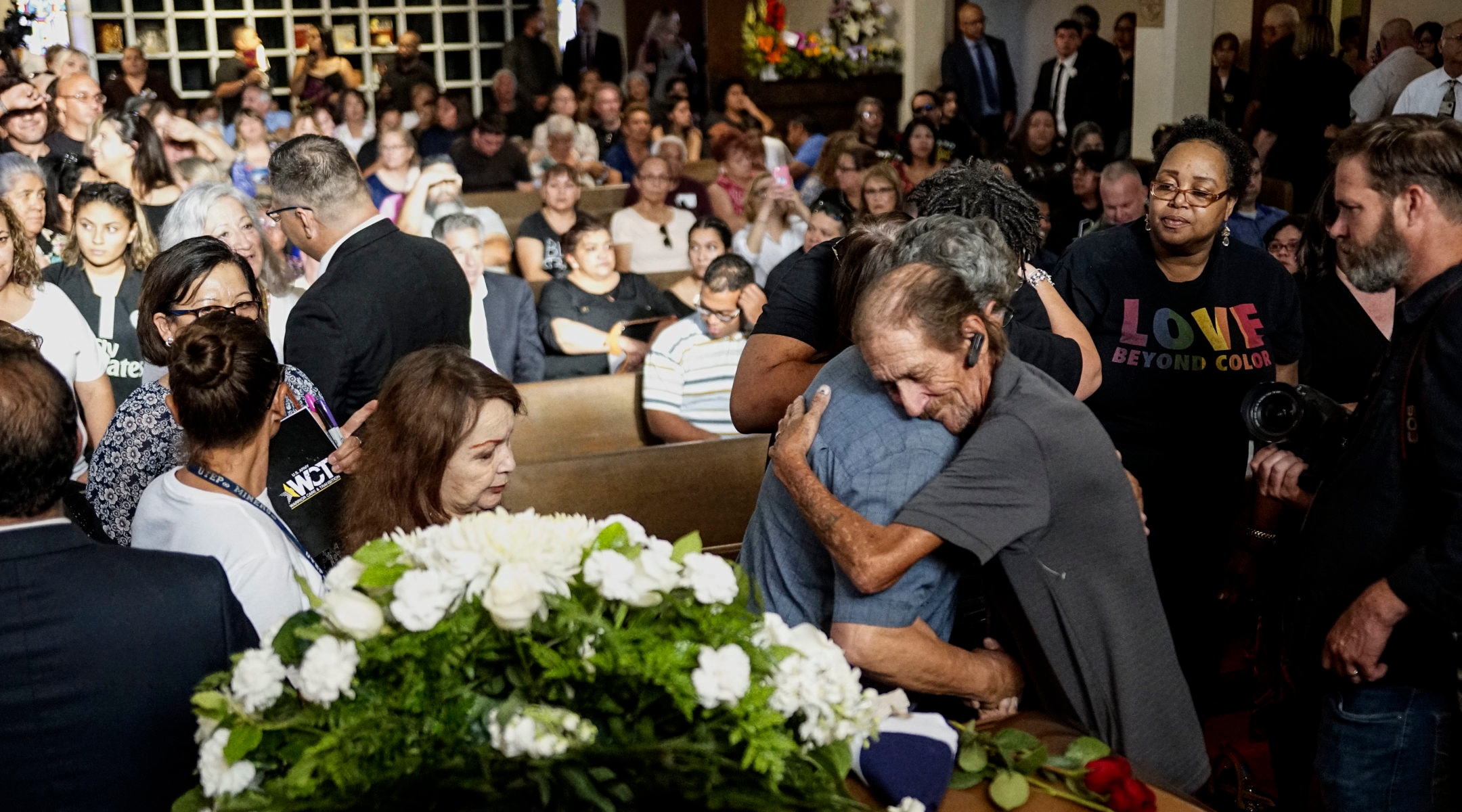EL PASO, Texas (JTA) — After Shabbat ended on Aug. 3, I was distraught to learn that my quiet hometown of El Paso had become the site of one of the worst hate-motivated mass shootings in American history. I was distraught for the victims and their families and sickened by the thought of such carnage happening so close to home.
Although we always hope each mass shooting will be the last one, that evening, a mass shooting took place in Dayton, Ohio, and two weeks later, another Texas massacre occurred in Odessa, five hours away. All of this less than four months after my nephew and two nieces survived the hate-motivated shooting at the Poway Chabad on the last day of Passover, and 10 months after the Tree of Life shooting in Pittsburgh.
As a Chabad rabbi and fellow El Pasoan, I am involved in the local healing process. The most common and urgent question I hear when speaking with families of the victims, fellow El Pasoans and elected officials is, “How do we stop this madness? Enough!”
As a society, we instinctively turn to our government and law enforcement demanding answers and solutions, as if they can legislate away and uproot all hatred and evil. One local politician confided to me that relying on the state government in Austin to save Texas through legislation conveys a convenient and unsettling falsehood: Regular citizens are powerless to do anything other than tweaking things at the ballot box.
He makes a strong point. Every human being can and must participate in healing society and ensuring that such hatred and horror does not strike again.
Based on the Lubavitcher Rebbe’s deeply insightful prescriptions for society, we can go a long way to immunize our nation’s youth from the menace of hatred with a few simple actions.
The Rebbe called to educate people of all ages and stages, and especially our youth, to become “givers” by giving money to charity every day — even a little bit. This was not an appeal for philanthropists to write out big checks, but for a grassroots campaign to train us all to become givers.
People are more influenced by the things they do than by the knowledge they are taught. Jewish tradition teaches that whereas big checks get big things done fast, and must certainly be appreciated, encouraged and multiplied, giving frequently and consistently, even in small amounts, transforms us into givers, helping to ensure that caring for others becomes central to our lives.
Everyone should become a giver — it is within our reach.
After sharing this concept with local community leaders, we started a citywide project called ARK (Acts of Random Kindness), gifting plastic charity boxes in a shape reminiscent of Noah’s Ark to schoolchildren. They are encouraged to put small amounts of money into their personal ARKs every day and, when full, to share the contents with the poor or a charitable organization. Although the giving happens at home, ARK motivates classroom discussions and school projects about kindness.
Proving this thesis, a high school student who crosses the border daily from Juárez, Mexico, to attend school recently thanked his principal for hosting the ARK project and shared that, until now, he was apathetic to the rampant poverty in Juárez. Giving charity every day changed everything, and he is now more compassionate and sensitive to the plight of the less fortunate.
When someone becomes a giver at a young age, it’s hard to hate others so blindly. Encouraging our youth to become givers is perhaps the closest we can get to stemming the tide of such hatred.
On Rosh Hashanah, we commemorate the creation of Adam, the first human, and the day he crowned God King of the universe, bringing this idea to the forefront of the consciousness of every living being and thus illustrating how one single person can bring perfection to all creation.
Each year we, his descendants, are called upon to follow in his path. Although the holiday observance and the mitzvah of shofar are uniquely Jewish obligations, the spirit of Rosh Hashanah is relevant to all humanity.
There is no need to wait for coordinated community efforts. Start the new year by affixing a tzedakah box prominently in your home, and encourage your family and guests to give daily (besides for Shabbat and the holidays, when our charity is meant to be channeled through giving our time and attention instead of physical money).
But don’t stop with your home. Install a tzedakah box at your workplace, in your conference or waiting room, and encourage everyone to participate. Let’s help tzedakah become the focal point of our lives, demonstrating to God that we are worthy of His trusteeship to share our means with others.
Kindness is contagious. One positive action can change the entire world for good.
JTA has documented Jewish history in real-time for over a century. Keep our journalism strong by joining us in supporting independent, award-winning reporting.







